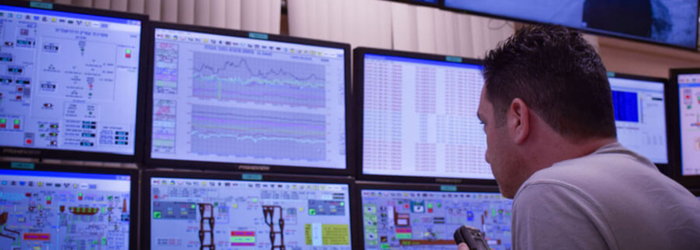In the realm of industrial automation, mastering Programmable Logic Controller (PLC) programming is essential for engineers and technicians. PLC simulation emerges as a powerful tool, transforming the learning and testing landscape by providing a virtual environment for training and experimentation. In this blog, we explore the benefits and applications of PLC simulation, showcasing how it enhances skill development, accelerates testing processes, and fosters a deeper understanding of automation systems.
1. Creating a Risk-Free Learning Environment:
PLC simulation provides a risk-free space for learners to experiment with programming concepts and test different scenarios. Without the fear of damaging physical equipment, trainees can explore and refine their skills in a controlled virtual environment.
2. Accelerating Skill Development:
By offering a hands-on experience in a simulated environment, PLC simulation accelerates skill development. Trainees can practice programming techniques, troubleshoot issues, and gain proficiency in a shorter time frame compared to traditional methods.
3. Realistic Scenario Replication:
PLC simulation allows the replication of realistic industrial scenarios. Trainees can work on simulations that mimic the complexities of actual automation systems, preparing them for the challenges they may encounter in real-world applications.
4. Cost-Effective Training Solutions:
Traditional PLC training setups involving physical equipment can be costly. PLC simulation reduces costs by eliminating the need for physical components, making it an economically viable solution for training programs.
5. Flexible Learning Environments:
PLC simulation is not bound by geographical constraints. Trainees can access virtual PLC environments from anywhere, facilitating flexible learning arrangements such as remote training, online courses, and collaborative learning experiences.
6. Customizable Training Scenarios:
In a simulated environment, training scenarios can be easily customized to cater to specific learning objectives. Instructors can create diverse scenarios to cover a wide range of PLC programming concepts and challenges.
7. Efficient Testing and Debugging:
PLC simulation streamlines the testing and debugging process. Engineers can test their programs in a simulated environment, identify errors, and debug code without impacting physical systems, ensuring smoother implementation in real-world applications.
8. Enhanced Safety Training:
PLC simulation is particularly valuable for safety training. Trainees can practice emergency scenarios and understand how to implement safety measures without exposing themselves to any physical risks.
9. Integration with HMI Simulation:
Simulating Human Machine Interface (HMI) interactions is seamlessly integrated with PLC simulation. This allows trainees to understand the interface between the PLC and the operator, enhancing their ability to design intuitive and user-friendly control systems.
10. Continuous Skill Refinement:
sqlCopy code
PLC simulation supports continuous skill refinement. As technology evolves, new PLC models and programming techniques emerge. With simulation, engineers can stay updated and refine their skills without waiting for physical equipment upgrades.
11. Resource Optimization:
csharpCopy code
Physical PLC setups require dedicated space and resources. Simulation eliminates these constraints, allowing multiple trainees to work simultaneously on different virtual PLCs without the need for additional physical infrastructure.
12. Environmentally Friendly Training:
vbnetCopy code
Adopting PLC simulation contributes to environmentally friendly training practices. With reduced reliance on physical components, there is a decrease in electronic waste and a more sustainable approach to skill development.
3. Interactive Learning Modules:
csharpCopy code
PLC simulation enables the creation of interactive learning modules. Trainees can engage with gamified simulations, quizzes, and challenges that enhance their understanding of PLC programming concepts in an engaging manner.
14. Industry-Specific Simulations:
vbnetCopy code
Develop industry-specific simulations tailored to the needs of various sectors. Whether it's manufacturing, energy, or healthcare, PLC simulation can provide context-specific training scenarios that resonate with real-world applications.
15. Augmenting PLC Troubleshooting Skills:
vbnetCopy code
Enhance troubleshooting skills through PLC simulation. Trainees can intentionally introduce faults and errors into their programs, allowing them to practice identifying and rectifying issues efficiently.
In conclusion, PLC simulation is a transformative tool that reshapes the landscape of PLC training and testing. By providing a risk-free, cost-effective, and flexible learning environment, simulation accelerates skill development, prepares engineers for real-world challenges, and contributes to a more sustainable and efficient approach to industrial automation education. As technology continues to advance, PLC simulation stands as a beacon for innovative and effective training methodologies in the ever-evolving field of industrial automation.





